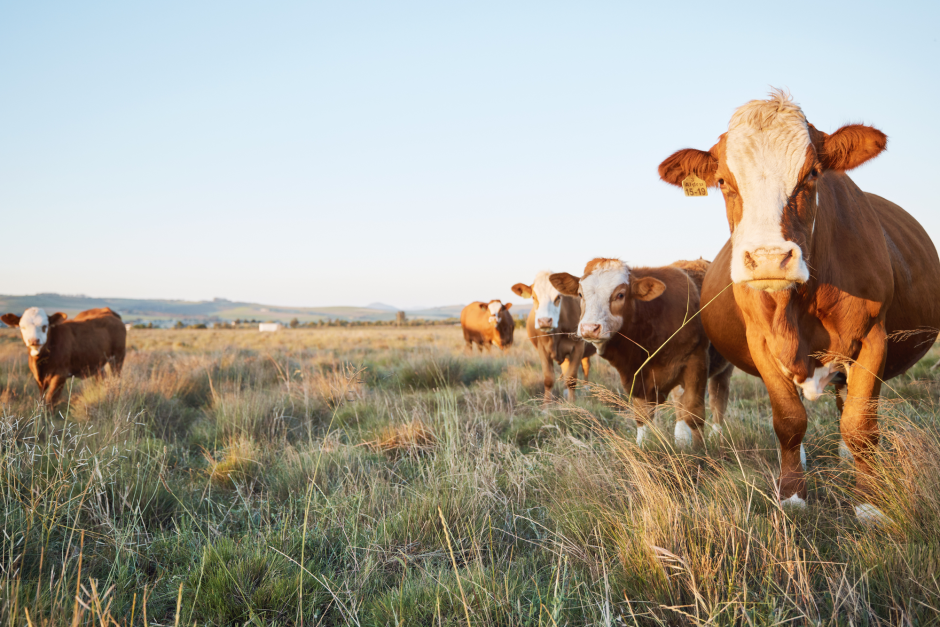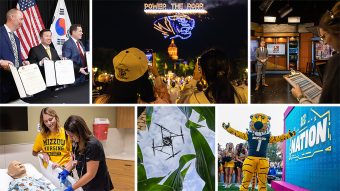

Nov. 3, 2025
Contact: Janese Heavin, heavinj@missouri.edu
Farmers across the country have access to advanced tools that make it easier to monitor and manage their pastures right from their phones or computers, thanks to University of Missouri Extension.
Now, Bernardo Candido, a research scientist in the Division of Plant Science and Technology, is building on those tools after being recently awarded a 2025 Taylor Geospatial Institute Planet Fellowship. The award will allow him to further develop PastureCast, a data-driven system designed to help beef and dairy farmers make smarter grazing decisions. The fellowship provides financial support and access to high-resolution imagery and other resources from Planet, a global leader in satellite data and analytics.
“I’m excited to have been selected as one of the early career researchers for this honor,” Candido said. “Institutes and companies outside of academia are seeing the value of this research because it delivers immediate, practical benefits for farmers. The award is recognition of a long journey, and I’m very proud of my team.”
Building on a Missouri innovation
PastureCast grew out of Mizzou’s PaddockTrac project, an early proof-of-concept device developed by the MU Pasture Precision Team. PaddockTrac uses ultrasonic sensors mounted on ATVs to measure grass height and estimate forage availability. Through field testing with farmers in more than 15 states, the team demonstrated how technology could transform pasture management —saving time, improving accuracy and reducing costs.
Candido and his colleagues are taking that concept to the next level. PastureCast combines data from those ground-based sensors with satellite imagery and artificial intelligence to estimate the amount of available forage across grazing lands.
By integrating this data with information about weather, soil composition and management practices, the system produces easy-to-understand reports that help farmers decide when to rotate herds, whether fields are overgrazed or underutilized, and how much supplemental feed may be needed.
Dairy and beef farmers can identify their acreage on a web interface, where they can also upload data from ground sensors. They then receive in-depth information to make decisions that keep the land and their livestock healthy.
“Farmers don’t need to know anything about the backend technology,” Candido said. “They have a user-friendly interface to help them make data-driven decisions about their fields.”
Candido’s fellowship will allow him to continue to refine and improve the AI models and provide an even more robust interface.
“We’ll be able to improve the way farmers interact with the system based on the new data and support we’ll be getting from Planet,” Candido said. “The ultimate goal of this project is to translate complex technology in a user-friendly way for farmers to better manage their lands. We want to transform the way dairy and beef farms operate.”


